16 Jaw-Dropping Non Alcoholic Wine Health Benefits

Going Alcohol Free:
#1 Can Non Alcoholic Wine Help Lower Blood Pressure?
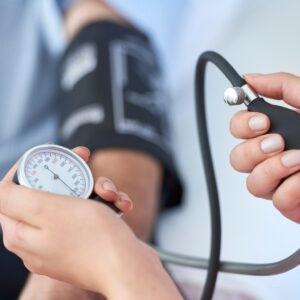
Red wine without alcohol has shown promising effects on blood pressur. A Spanish study published in Circulation Research found that drinking non-alcoholic red wine can lead to a significant reduction in blood pressure.
Specifically:
- Systolic blood pressure (the top number) decreased by an average of 6 points
- This reduction is estimated to lower heart disease risk by 14% and stroke risk by up to 20%
The key mechanism appears to be an increase in nitric oxide levels in the bloodstream. Nitric oxide helps relax blood vessel walls, allowing for better blood flow and lower pressure.
Why It’s Important:
Maintaining healthy blood pressure is crucial for several reasons:
- Reduced cardiovascular risk: Lower blood pressure decreases the strain on the heart and blood vessels, reducing the risk of heart disease and stroke.
- Organ protection: Healthy blood pressure helps protect vital organs like the kidneys and brain from damage.
- Overall health: Proper blood pressure is associated with better cognitive function and reduced risk of dementia.
Advantages Of Alcohol-Free Wine Over Traditional Wine:
While traditional red wine has some health benefits, non-alc reds appears to be more effective at lowering blood pressure. This is likely because:
- Alcohol can interfere with the beneficial effects of polyphenols, the antioxidants in red wine
- Alcohol itself can raise blood pressure when consumed in larger quantities
Dr. Franz Messerli, a cardiologist at St. Luke’s-Roosevelt Hospital in New York, suggests that alcohol may cancel out some of the good done by the antioxidants in red wine. The removal of alcohol appears to enhance the beneficial effects of the polyphenols on blood pressure.
It’s important to note that while these findings are promising, more research is needed to fully understand the long-term effects of alcohol-free red wine on cardiovascular health. As Dr. Deepak Bhatt, a cardiologist and professor at Harvard Medical School, advises, it’s best not to make clinical recommendations based on a single small study. However, for those who enjoy alcohol-free red wine, it may be worth observing its effects on their blood pressure.
#2 What Are The Long-Term Affects Of Regularly Consuming Non Alcoholic Red Wine On Cardiovascular Health?
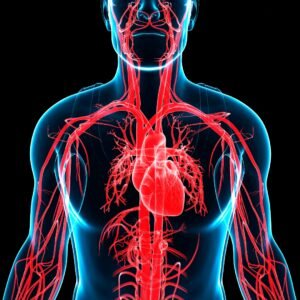
Here are some key findings:
Antioxidant Benefits:
Non-alcoholic red wine contains high levels of polyphenols, particularly resveratrol, which have potent antioxidant properties. These compounds may help:
- Reduce oxidative stress
- Decrease inflammation
- Improve endothelial function
A review of randomized controlled trials found that red wine consumption, including NA varieties, resulted in improvements in antioxidant status, thrombosis and inflammation markers, and lipid profiles.
Limitations and Need for Further Research:
It’s important to note that while these findings are promising, more long-term studies are needed to fully understand the effects of non-alcoholic red wine on cardiovascular health. Most existing studies have been relatively short-term, and more research is needed to confirm the long-term benefits and potential risks.
Additionally, individual responses may vary based on factors such as genetics, overall diet, and lifestyle. For example, one study found that the blood pressure-lowering effects of red wine were more pronounced in individuals who were fast ethanol metabolizers based on their genetic profile.
In conclusion, while regular consumption of non-alc red wine shows potential for improving cardiovascular health, particularly in terms of blood pressure reduction and antioxidant benefits, more comprehensive long-term studies are needed to fully establish its effects and optimal consumption patterns.
#3 What Are The Benefits Of Drinking Non Alcoholic Wine For A Hangover-Free Morning?

Say goodbye to nausea, headaches, body aches, and the dreaded “morning after” anxiety that often accompanies traditional wine consumption. I must say that I do not miss these mornings whatsoever. In fact, I now look back and wonder how many days of my life I wasted feeling hungover or unable to get out of bed. What a waste of time.
Mental Clarity and Productivity:
Choosing to spend an evening sipping NA wine can lead to significant cognitive and emotional benefits:
Improved Cognitive Function and Decision-Making Abilities:
- Brain Function: Without alcohol’s depressant effects, your brain operates at full capacity from the start of the day.
- Memory Enhancement: Studies show that alcohol can impair short-term memory. NA alternatives allow for better information retention and recall. I can attest to this fact. I always thought I had the inability to remember my childhood, even happy special occasions. With every year of sobriety, I’m remembering more and more of my childhood. My memories continue to become more vivid.
- Faster Processing: Your ability to process information and react quickly remains unimpaired, crucial for complex tasks and decision-making.
Increased Productivity Throughout the Day:
- Sustained Energy: Avoiding alcohol means no mid-morning energy crashes, allowing for consistent productivity.
- Better Focus: Without the distracting effects of alcohol, concentration on tasks improves significantly.
- Time Management: Clear-headed individuals tend to manage their time more effectively, leading to increased overall productivity.
Better Mood and Reduced Anxiety Levels:
- Emotional Stability: Alcohol can exacerbate mood swings and anxiety. NA options help maintain emotional balance. Since giving up alcohol my mood has remained consistent. I clearly remember how one night of drinking could alter my mood for the rest of the month. I felt depressed for weeks.
- Natural Stress Relief: The ritual of enjoying a glass of wine, even non-alcoholic, can be relaxing and stress-reducing.
- Positive Outlook: Starting the day clear-headed often leads to a more positive and optimistic mindset.
Additional Benefits:
- Social Engagement: You can participate in social drinking situations without the negative effects of alcohol, potentially improving work relationships. Nowadays many restaurants are offering non alcoholic alternatives. This makes it so convenient for Shawn and I to enjoy dining out with others without feeling ackward.
- Long-term Brain Health: Regular consumption of non-alcoholic wine, particularly red varieties, may offer neuroprotective benefits due to their antioxidant content.
#4 What Are The Waistline-Friendly Benefits of Drinking Non Alcoholic Wine?

Alcohol-free wine typically contains fewer calories, carbohydrates, and sugars compared to its alcoholic counterpart. While a standard glass of wine may contain up to 130 calories, some alcohol-free alternatives offer as few as 10 calories per serving. For years I struggled with weight gain. This struggle has virtually disappeared since giving up alcohol.
Lower Calorie Content in Alcohol-Free Wine:
Non-alcoholic wine contains significantly fewer calories than regular wine:
- It has about 3-4 times fewer calories than alcoholic wine.
- A typical glass of non-alcoholic wine has only about 1/3 the calories of regular wine.
This lower calorie content can be beneficial if you want to manage your weight or reduce calorie intake.
Reduced Sugar in NA Wine:
Many non-alcoholic wines, especially dry varieties, tend to have less sugar than their alcoholic counterparts:
- Dry non-alc wines may contain 5 grams of sugar per liter or less. It’s important to read the nutritional labels of non alc wines. No all of them are low in sugar.
- Lower sugar content means fewer empty calories.
No Alcohol-Related Weight Gain:
By eliminating alcohol, NA wine helps avoid:
- The empty calories from alcohol itself.
- Potential overeating often associated with alcohol consumption.
#5 How Does Drinking Non-Alcoholic Wine Improve Sleep Quality?

Alcohol consumption can disrupt sleep patterns, leading to restless nights and poor sleep quality. I mentioned this at the beginning of this blog. Alcohol can do a number of your sleep patterns.
By opting for alcohol-free wine, you can enjoy your favorite beverage without compromising your rest. By choosing non-alcoholic wine, you can enjoy a relaxing evening beverage without compromising your sleep quality, potentially leading to better rest and improved daytime function.
Drinking non-alcoholic wine can offer several benefits for sleep quality compared to alcoholic wine:
Improved Sleep Architecture:
Non-alcoholic wine allows for a more natural sleep cycle and improved sleep architecture:
- More REM sleep: Alcohol disrupts REM sleep, which is crucial for memory consolidation and cognitive function. Zero alcohol wine doesn’t interfere with REM sleep patterns.
- Less fragmented sleep: Alcohol can cause frequent awakenings and lighter sleep in the second half of the night. Alcohol-free wine doesn’t lead to this sleep fragmentation.
- Better deep sleep: While alcohol initially increases deep sleep, it disrupts overall sleep architecture. Non-alcoholic wine allows for a more balanced progression through sleep stages.
Reduced Sleep Disturbances:
Choosing non-alcoholic wine can help avoid several alcohol-related sleep disturbances:
- Fewer bathroom trips: Alcohol is a diuretic, increasing nighttime urination. Non-alcoholic wine doesn’t have this effect.
- Less snoring and sleep apnea: Alcohol relaxes throat muscles, worsening snoring and sleep apnea. Non-alcoholic wine doesn’t cause this muscle relaxation.
- Reduced risk of insomnia: Heavy alcohol use can contribute to insomnia. Non-alcoholic wine doesn’t carry this risk.
Better Sleep Quality and Daytime Function:
Opting for non-alcoholic wine can lead to better overall sleep quality and daytime functioning:
- More restorative sleep: Without alcohol’s interference, sleep is more likely to be truly refreshing.
- Improved daytime alertness: Better sleep quality leads to feeling more alert and focused during the day.
- Consistent sleep-wake cycle: Alcohol can disrupt circadian rhythms. Non-alcoholic wine allows for a more regular sleep schedule.
#6 Does Non Alcoholic Wine Offer Any Benefits For Maintaining Healthy Cholesterol Levels?

Non-alcoholic red wine retains the cholesterol-fighting properties of traditional wine without the negative effects of alcohol. A 2001 study documented this benefit, suggesting that alcohol-free wine could be a heart-healthy choice.
Non-alcoholic wine offers several potential benefits for cholesterol management and heart health:
Cholesterol-Lowering Effects:
Non-alcoholic red wine has been shown to have positive effects on cholesterol levels:
- It can help lower total cholesterol and LDL (“bad”) cholesterol levels, especially in individuals with high cholesterol.
- The polyphenols and antioxidants in non-alcoholic wine may reduce the oxidation of LDL cholesterol, making it less likely to contribute to plaque buildup in arteries.
#7 What Are The Benefits Of Maintaining Self-Control By Drinking Non Alcoholic Wine?

Non-alcoholic wine offers several maintained self-control benefits compared to regular alcoholic wine:
Reduced Risk of Binge Drinking:
By choosing non-alcoholic wine, you eliminate the risk of binge drinking episodes that can lead to loss of control and poor decision-making.
Maintained Inhibitions:
Without the disinhibiting effects of alcohol, you’re more likely to maintain self-control over your actions and behaviors in social situations.
Development of Healthier Coping Mechanisms:
Opting for non-alcoholic wine encourages finding alternative ways to relax and destress that don’t rely on alcohol, promoting better long-term coping skills.
Improved Relationships:
Choosing non-alcoholic wine allows you to engage in social situations without the risk of alcohol affecting your interactions or communication skills.
Financial Control:
By avoiding alcoholic drinks, you can exercise better control over your spending habits related to alcohol consumption.
#8 What Are The Benefits Of Reduced Cancer Risk Associated With The Consumption Of Non-Alcoholic Wine?

Non-alcoholic wine offers several potential benefits for reducing cancer risk compared to alcoholic wine:
Reduced Overall Cancer Risk:
Drinking non-alcoholic wine eliminates the cancer risks associated with alcohol consumption. Regular alcohol intake is linked to increased risks of several types of cancer, including:
- Head and neck cancers (1.8-5x higher risk)
- Esophageal cancer (1.3-5x higher risk)
- Liver cancer (2x higher risk)
- Breast cancer (1.04-1.6x higher risk)
- Colorectal cancer (1.2-1.5x higher risk)
By removing the alcohol, non-alcoholic wine avoids these increased cancer risks.
Retained Antioxidant Benefits:
Non-alcoholic wine still contains beneficial polyphenols and antioxidants like resveratrol, which may help protect against cancer. These compounds remain present even after the alcohol is removed.
Lower Calorie Option:
Non-alcoholic wine is typically lower in calories than regular wine. Maintaining a healthy weight through lower calorie intake can help reduce cancer risk.
Avoids Alcohol Dependence:
Drinking non-alcoholic wine eliminates the risk of developing alcohol dependence, which can lead to excessive drinking and increased cancer risk over time.While more research is still needed on the specific cancer-fighting benefits of non-alcoholic wine, removing alcohol while retaining beneficial compounds appears to offer cancer risk reduction benefits compared to alcoholic wine. However, it’s important to note that stopping alcohol consumption does not immediately reduce existing cancer risks. Overall, non-alcoholic wine provides a safer alternative for those looking to enjoy wine without the cancer risks associated with alcohol.
#9 How Does The Consumption Of Non-Alcoholic Wine Potentially Enhance Cognitive Function And Mental Performance?

Excessive alcohol consumption can negatively impact both short-term and long-term memory. Non-alcoholic wine contains phytochemicals that may actually enhance memory and potentially reduce the risk of conditions like Alzheimer’s disease.
Memory Enhancement
- Phytochemical Benefits: Non-alcoholic wine contains phytochemicals that may improve memory function. These compounds have been linked to cognitive benefits without the negative effects of alcohol on the brain.
- Alzheimer’s Disease Prevention: Some studies suggest that the phytochemicals in non-alcoholic wine may help reduce the likelihood of developing Alzheimer’s disease. This is particularly significant for long-term cognitive health.
Alcohol’s Negative Impact on Memory
- Long-term Memory Effects: Regular alcohol consumption, even in moderate amounts, can negatively impact long-term memory. Heavy drinkers often struggle to recall important information stored in deeper parts of memory.
- Blackouts and Short-term Memory: Alcohol is known to cause blackouts and short-term memory loss, which are completely avoided with non-alcoholic alternatives.
Cognitive Function
- Improved Cognitive Skills: While moderate alcohol consumption has been associated with some cognitive benefits, non-alcoholic wine provides similar advantages without the risks. One study showed that drinking one alcoholic beverage daily improved memory and thinking skills in older males.
- Neuroprotective Properties: The antioxidants in wine, which are retained in non-alcoholic versions, may have neuroprotective effects, potentially slowing the progression of neurological disorders like Alzheimer’s and Parkinson’s disease.
#10 How Does Non Alcoholic Wine Support Immune Function?
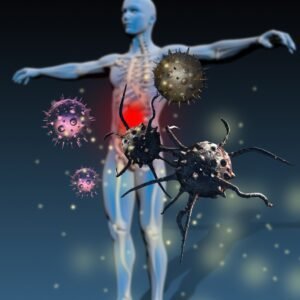
By providing these benefits without the negative effects of alcohol, non-alcoholic wine can be a good choice for those looking to support their immune system and overall health. However, it’s important to note that more research is needed to fully understand the extent of these benefits, and non-alcoholic wine should be consumed as part of a balanced diet and healthy lifestyle.Non-alcoholic wine offers several potential benefits for supporting the immune system:
Antioxidant Content:
Non-alcoholic wine retains many of the beneficial antioxidants found in regular wine, particularly polyphenols. These antioxidants can help boost the immune system in several ways:
- They protect cells from damage caused by free radicals.
- Antioxidants like those found in wine may help reduce inflammation in the body.
- The antioxidants in non-alcoholic wine can strengthen the immune system without the negative effects of alcohol.
Immune System Support:
Consuming non-alcoholic wine may provide direct benefits to immune function:
- It can help boost the immune system, making it stronger and more resilient.
- Unlike alcoholic wine, alcohol-free versions don’t suppress or damage the immune system.
Reduced Risk of Illness:
Some studies suggest that moderate consumption of non-alcoholic wine may have protective effects:
- Research has found that people who drink wine, particularly red wine, may be less likely to get the common cold.
- The antioxidants and other beneficial compounds in NA wine may help reduce the risk of certain diseases.
#11 How Does Non Alcoholic Wine Contribute To Liver Health?
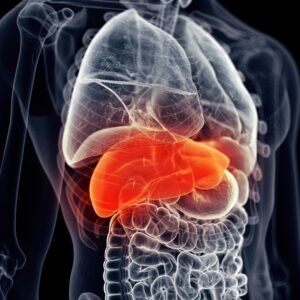
While more research is needed to fully understand the liver health benefits of non-alcoholic wine, current evidence suggests it may offer protective effects without the risks associated with alcohol consumption. However, it’s important to consume it in moderation as part of an overall healthy diet and lifestyle.
Non-alcoholic wine offers several potential liver health protection benefits:
Antioxidant Effects of Non Alc Wine:
Non-alcoholic wine contains many of the beneficial compounds found in regular wine, particularly antioxidants, without the harmful effects of alcohol:
- It is rich in polyphenols and other antioxidants that can help protect liver cells from oxidative damage.
- Antioxidants like resveratrol may help reduce inflammation and fat accumulation in the liver.
Reduced Risk of Fatty Liver Disease:
Some studies suggest moderate consumption of non-alcoholic wine may help protect against non-alcoholic fatty liver disease (NAFLD):
- It contains fewer calories than alcoholic wine, which can help prevent weight gain and fat accumulation in the liver.
- The antioxidants and polyphenols may help improve insulin sensitivity and reduce liver fat.
Safety for At-Risk Groups:
Non-alcoholic wine is a safer option for those at higher risk of liver disease:
- It can be consumed by those with existing liver conditions, unlike alcoholic beverages.
- It’s suitable for pregnant women and those taking medications that interact with alcohol.
Potential Anti-Inflammatory Effects of Zero Alcohol Wine:
The polyphenols in non-alcoholic wine may have anti-inflammatory properties that could benefit liver health:
- Reducing inflammation may help protect against liver damage and disease progression.
#12 What Are The Benefits Of Enhanced Hydration From Consuming Non-Alcoholic Wine?

By providing hydration without the dehydrating effects of alcohol, non-alcoholic wine allows you to enjoy the flavor of wine while supporting your body’s fluid balance and overall health. Non-alcoholic wine can offer several hydration benefits compared to alcoholic wine:
Enhanced Hydration From NA Wine:
Non-alcoholic wine provides better hydration than regular wine for a few key reasons:
- No diuretic effect: Alcoholic beverages act as diuretics, increasing urine production and potentially leading to dehydration. Non-alcoholic wine does not have this effect, allowing you to retain more fluid.
- Higher water content: With the alcohol removed, non-alcoholic wine has a higher proportion of water, contributing more to your daily fluid intake.
- Electrolyte content: Many non-alcoholic wines retain some of the electrolytes found in grapes, which can aid in hydration and fluid balance.
Health Benefits from Non Alc Wine:
Proper hydration from non-alcoholic wine consumption may provide additional health benefits:
Cardiovascular Health
- Lowers blood pressure: Studies have shown NA red wine can help reduce blood pressure, potentially decreasing heart disease and stroke risk by 14% and 20% respectively.
- Reduces blood clot risk: The phytochemicals in non-alcoholic wine may help reduce the formation of blood clots.
Metabolic Health:
- Weight management: With fewer calories than alcoholic wine, non-alcoholic options can support weight loss or maintenance goals while still providing hydration.
- Blood sugar control: Some studies suggest non-alcoholic wine may have anti-diabetic potential, potentially helping to manage blood sugar levels.
Cognitive Function:
- Improved sleep: Better hydration from non-alc wine can contribute to improved sleep quality compared to alcoholic beverages.
- Memory support: Proper hydration is important for cognitive function, including memory.
#13 How Does Consuming Non-Alcoholic Wine Potentially Improve The Body’s Ability To Absorb Essential Nutrients?
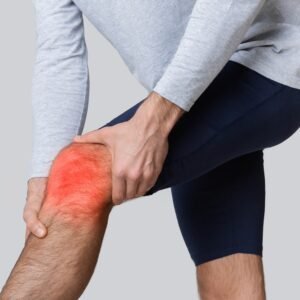
Consuming non-alcoholic wine may potentially improve the body’s ability to absorb essential nutrients in several ways:
Antioxidant Effects:
NA red wine contains high levels of polyphenols and other antioxidants that can enhance the body’s antioxidant capacity. This increased antioxidant activity may help protect nutrients from oxidative damage during digestion and absorption.
Improved Gut Health From NA Wine:
Non-alcoholic wine contains probiotics that can contribute to a healthier gut microbiome. A balanced gut microbiome supports better digestion and nutrient absorption overall.
Reduced Inflammation:
By eliminating alcohol, which can trigger inflammation in the digestive tract, non-alcoholic wine allows the gut lining to heal. This reduction in inflammation may improve the intestinal barrier function and enhance nutrient absorption.
Enhanced Nutrient Absorption:
Alcohol can interfere with the absorption of essential vitamins and minerals in the intestines. By choosing non-alcoholic wine instead, the gut lining can recover, potentially restoring and improving the absorption of vital nutrients.
#14 How Does Consuming Non Alcoholic Wine Contribute To Lowering The Risk Of Developing Alcohol Dependence?
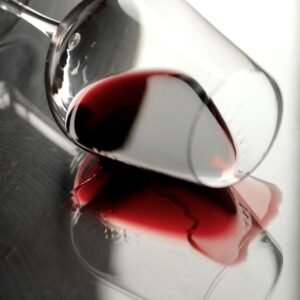
Consuming NA wine can contribute to lowering the risk of developing alcohol dependence in several ways:
Reduced Alcohol Intake:
The most direct benefit of non-alcoholic wine is that it contains little to no alcohol. By definition, non-alcoholic or dealcoholized wine has had most or all of its alcohol content removed, typically containing less than 0.5% alcohol by volume. This significantly reduces overall alcohol consumption compared to regular wine, which usually contains around 12% alcohol.
Lower Risk of Dependence:
By consuming less alcohol, individuals reduce their risk of developing alcohol dependence over time. Alcohol dependence is directly linked to the amount and frequency of alcohol consumption. Replacing alcoholic wine with NA alternatives allows people to maintain the ritual and enjoyment of drinking wine without the addictive effects of alcohol.
Behavioral Modification:
For those trying to reduce their alcohol intake or maintain sobriety, NA wine can serve as a substitute that helps modify drinking behaviors:
- It allows participation in social drinking situations without consuming alcohol.
- It can help satisfy cravings or habits associated with wine drinking.
- It provides a familiar taste and experience, easing the transition away from alcoholic beverages.
Improved Self-Control:
Choosing non-alcoholic wine demonstrates and reinforces self-control in relation to alcohol consumption. This can boost confidence in one’s ability to manage drinking habits and resist alcohol, potentially reducing the likelihood of developing dependence. By providing a satisfying alternative that mimics the experience of drinking wine without the addictive and harmful effects of alcohol, non-alcoholic wine can be a valuable tool in reducing alcohol dependence risk. However, it’s important to note that for individuals already struggling with alcohol use disorder, even non-alc beverages may trigger cravings in some cases, so their use should be considered carefully in a treatment context.
#15 How Does The Consumption Of Non Alcoholic Wine Potentially Contribute To Improved Skin Health And Appearance?

Recent research suggests that consuming zero alcohol wine, particularly muscadine wine, may contribute to improved skin health and appearance in several ways:
Improved Skin Elasticity:
A study conducted by researchers at the University of Florida found that women who drank two glasses of dealcoholized muscadine wine daily for six weeks showed significantly improved skin elasticity compared to baseline. This improvement was especially noticeable on the skin of their forearms.
Enhanced Water Retention From Zero Alcohol Wine:
The consumption of non-alc muscadine wine was associated with decreased water loss at the skin surface, particularly on the face. This improved water retention helps maintain a stronger skin barrier and may protect against damage.
Potential Anti-Aging Effects:
The benefits observed in skin elasticity and water retention are crucial factors in preventing sagging skin as one ages. These improvements are likely due to the unique polyphenolic profile of muscadine grapes.
Reduction in Inflammation and Oxidative Stress:
Researchers noted decreases in markers of inflammation and oxidative stress in women who consumed the alcohol-free muscadine wine. These factors are known to contribute to skin aging.
Mechanism of Action:
The positive effects on skin health are attributed to polyphenols, particularly those found in muscadine grapes:
- Ellagic acid
- Anthocyanins
- Quercetin
- Resveratrol
These compounds are known for their antioxidant properties and potential to reduce inflammation.
Limitations and Considerations:
It’s important to note that:
- The study focused specifically on dealcoholized muscadine wine.
- No significant changes were observed in wrinkles or skin smoothness.
- The research involved a small sample size and short duration, indicating the need for larger, more diverse studies to confirm these findings.
#16 How Does Consuming Non Alcoholic Wine Potentially Enhance Athletic Performance And Recovery?

NA wine can potentially enhance athletic performance and recovery in several ways:
Improved Immune Function:
Consuming non-alc wine may help boost the immune system, which is crucial for athletes. A study on runners found that regular consumption of de-alcoholized beer before and after a marathon resulted in reduced inflammation and fewer upper respiratory infections. This effect is attributed to the polyphenols and antioxidants present in NA wine, which can help athletes maintain consistent training by reducing illness-related setbacks.
Enhanced Glycogen Synthesis:
Alcohol-free wine provides post-workout carbohydrates without the negative effects of alcohol on glycogen replenishment. While alcohol can impair glycogen synthesis, non-alcoholic alternatives allow athletes to fully replenish their glycogen stores. This is essential for reducing muscle soreness and improving recovery for the next training session.
Better Muscle Recovery:
Alcohol can inhibit muscle protein synthesis, which is crucial for muscle repair and rebuilding. By opting for de-alcoholized wine, athletes can avoid this negative effect and potentially enhance their muscle recovery process. This is particularly beneficial for athletes looking to build strength and prevent injuries.
What Other Blogs About Non Alcoholic Wine May Be Of Interest To You?

- 10 Unique & Healthy Moctails You Need To Try
- Cracking The Code Of Pairing Non Alcoholic Wines With Cheese
- Secrets To Pairing Alcohol-Free White Wines with Seafood Delights
- How To Choose The Best Zero Alcohol Red Wine
- ONES Sparkling Rose & Lemon-Ginger Cod
I’m excited to share with you my good news… Introducing Sinless Sourdough – Where Ancient Art Meets Low Carb Science!

Stop sacrificing flavor for your health goals – our authentic heritage sourdough starters have been specially adapted for low-carb baking
Limited Time Offer: 82% OFF – Only $19.99 Today (Regular Price: $113)
Sinless Sourdough™ Starter + Membership Includes:
- Authentic Heritage Starter shipped directly to your door
- Complete Video Training Library showing you step-by-step how to create:
- Artisan boules and batards with delicious crispy crust and soft interior
- Crisp French baguettes for the dinner table or as crostini
- Chewy Montreal-style bagels that won’t spike your blood sugar
- German street pretzels with authentic alkaline crust
- Convenient everyday bread machine loaves for sandwiches
- Supportive Community of fellow low-carb bakers to share your journey
- Extensive Recipe Collection for using sourdough discard (nothing goes to waste!)
“After years of disappointing low-carb bread experiments, Sinless Sourdough changed everything. I’m enjoying real sourdough again without the carb guilt!” — Maria T.
“My family can’t tell the difference between these loaves and traditional bread. The starter is incredibly active and the results are amazing!” — James K.
🔥 CLAIM YOUR MEMBERSHIP NOW 🔥
Use code: Sinless82 at checkout Offer expires soon! Limited starter batches available
82% OFF TODAY FOR MEMBERSHIP
Sinless Sourdough™ Heritage Collection

Transform your low-carb baking with our Global Heritage Collection featuring unique starters from historic moments across continents. Each brings its own personality and flavor profile while maintaining excellent nutritional values—just 1g net carbs compared to 8-10g in traditional starters.
Choose from:
- 1849 San Francisco Gold Rush – Authentic California sourdough character
- 1898 Yukon Gold Rush – Subtle tanginess with notes of butter
- 1847 Oregon Trail – Rustic character with exceptional rise
- 1000-Year-Old Italian Monastery – Delicate complexity with ancient lineage
Each starter connects you to centuries of baking tradition while supporting your modern low-carb lifestyle. Our proprietary transformation process preserves their unique characteristics while adapting them for health-conscious baking.
When you purchase any Sinless Sourdough™ starter, you receive our comprehensive onboarding sequence teaching you exactly how to revive your dehydrated starter for perfect low-carb, high-protein results every time.
Click the link:
SINLESS STARTER SHOP
🍞 START YOUR LOW-CARB SOURDOUGH JOURNEY TODAY! 🍞
Medical Studies and Reviews on Sourdough
Here they are:
Does Sourdough Bread Provide Clinically Relevant Health Benefits?
The Sourdough Microbiome
Study Of Sourdough Starter Microbiome To Boost Bread Quality and Safety
Sourdough Microbiome Comparison and Benefits
Effect of Breadmaking Process on In Vitro Gut Microbiota Parameters in Irritable Bowel Syndrome
Nutritional Benefits of Sourdough; Systematic Review
Sourdough-leavened bread improves postprandial glucose and insulin plasma levels in subjects with impaired glucose tolerance
Use of sourdough in low FODMAP baking
A novel formulation of sourdough bread enriched with plant sterols and high-fibre inulin improves metabolic control in type 2 diabetes
Impact of sourdough fermentation on appetite and postprandial metabolic responses – a randomised cross-over trial with whole grain rye crispbread
Disclaimer:
All information provided on this website regarding the health benefits of sourdough low carb bread is intended for educational purposes only. The content presented is not meant to be taken as specific medical advice for any individual. It should not be considered a replacement for professional medical guidance or treatment. If you have any health concerns, especially related to diabetes, pre-diabetes, or any other medical condition, please consult with a healthcare professional immediately.
- UNUSUAL KETO INSTANT POT RECIPES FOR 2025 - April 27, 2025
- Boost Your Keto Diet with These Non-Alcoholic Wine Hacks - April 27, 2025
- 10 Unique & Healthy Mocktails You Need to Try - April 27, 2025


